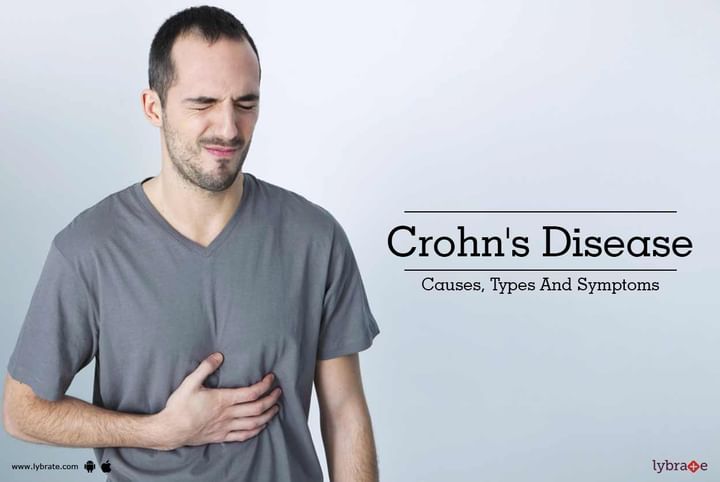Crohn's Disease - Causes, Types and Symptoms!
One of the most severe illnesses included in the larger group of diseases, is known as inflammatory bowel disease (IBD). Crohn's disease is typically a long-lasting, chronic condition. The intestine or bowel, most commonly the colon and the lower part of the small intestine, are either marked by sores or get inflamed and ulcerated. It is a common occurrence in adolescents and in young adults.
Types : Crohn's disease is subdivided into five types, each having its own set of symptoms:
- Ileocolitis: The most common type, it affects the colon and the ileum and results in considerable weight loss as well as diarrhea and cramps.
- Gastroduodenal Crohn's disease: People who suffer from this type of disease have their stomach and duodenum affected and many experience symptoms like nausea, loss of appetite and weight loss.
- Crohn's Colitis: This involves only the stomach, and can cause joint pains, rectal bleeding, skin lesions and diarrheas.
- Ileitis: This type of Crohn's disease affects the ileum and the symptoms are identical to those of ileocolitis.
- Jejunoileitis: In this type, the jejunum gets affected and general symptoms include the formation of fistulas, diarrhea, intensive back pain as well as areas of inflammation.
Causes: Although there are many theories about what causes Crohn's disease, none of them have been proven. However, there have been a few possible causes which have been identified. These include:
- Immune system problems
- Genetic disorders
- Environmental factors, such as: a) Certain edibles, b) Viruses or harmful bacteria, c) Smoke.
Symptoms: The primary symptoms of Crohn's disease include the following:
- Diarrhea: Diarrhea is a common problem for people with Crohn's disease and can occur for about 10 to 20 times a day in severe cases.
- Blood in your stool: In rare cases, you might notice blood in the toilet bowl or darker blood mixed with your stool.
- Fever and fatigue: In more intense cases, you may develop a fever. You may also feel tired or have low energy.
- Abdominal pain and cramping: You may experience anything from slight discomfort to severe cramping and intermittent belly pain, including nausea and vomiting.
- Anemia: Due to a reduction in iron level caused by bloody stools a person can turn anemic.
- Reduced appetite and weight loss: Abdominal pain and cramping can affect both your appetite and your ability to digest food, which leads to severe weight loss.
- Perianal disease: Erratic appearance of small tears in the anus are called anal fissures. If you wish to discuss about any specific problem, you can consult a Gastroenterologist.



+1.svg)
